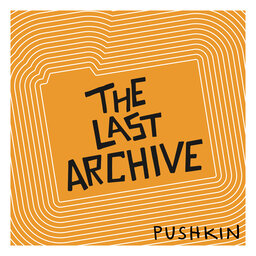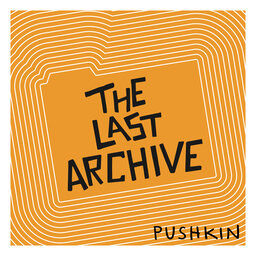Is Shakespeare American? From Where There’s a Will
We’re bringing you an episode of a new Pushkin podcast we’re enjoying and think you will, too. Where There’s a Will: Finding Shakespeare searches for the surprising places Shakespeare shows up outside the theater. Host Barry Edelstein, artistic director at one of the country’s leading Shakespeare theaters, and co-host writer and director Em Weinstein, ask what is it about Shakespeare that’s given him a continuous afterlife in all sorts of unexpected ways? You’ll hear Shakespeare doing rehabilitative work in a maximum security prison, helping autistic children to communicate, in the mouths of U.S. presidents, and even at the center of a deadly riot in New York City. In this episode, Barry and Em take us back in time to 1849 – a riot at a Shakespearean theater has left dozens of people dead. But as it always is with the Bard, there's more here than meets the eye. Why did some people think Shakespeare was important enough to die for? How did the work of one man writing in Victorian England capture the tensions brewing in a newly independent America? And who, if anyone, is Shakespeare really for?
Hear the full episode, and more from Where There’s a Will, at https://podcasts.pushkin.fm/wtaw?sid=tla.
Pushkin, Hey, last Archive listeners. This week, we're sharing a preview of another Pushkin show, Where There's a Will, which searches for the surprising places Shakespeare shows up. Outside the theater, You'll hear Shakespeare doing rehabilitative work in a maximum security prison, helping autistic kids to communicate, shaping religious observances even in the oval office. Uncovered the way Shakespeare endures in our modern society and what that says about us. In this preview, the year is eighteen forty nine and a riot at a Shakespearean theater has left dozens of people dead. But as always with Shakespeare, there's more here than meets the eye. Why did some people think he was important enough to die for? How did the work of one man writing in Victorian England capture the tensions brewing in a newly independent America? And who, if anyone, is Shakespeare really for? Okay, here comes the episode you can find Where There's a Will wherever you get your podcasts. If I asked you to close your eyes and tell me what Shakespeare sounds like in your mind, what kind of sound would you hear tapping of a pen on a paper? Oh? Yeah, yeah, just like thinking of, you know, in the scribble of like an old fountain pen, writing like it's very sharp sounding. And if someone were speaking his lines, what would they sound like to you? I feel like he would have an English accent. Yeah, probably English was even English. He was English, Okay, yeah, not American. Wouldn't sound America, yeah, I mean it could have been like super proper English, like what an english Man would say, like a scholar. Can you imagine a time in America where people would be willing to die over Shakespeare? I believe in disagreement. I think it's a good thing. I think people should test their views and talk to other people and so on. So violence we draw the line, not violent, not violence. It's hard to imagine that, you know, art could inspire people to violence like that. It's true there was a time in America when Shakespeare was important enough to die for the year eighteen forty nine. America has been independent for less than a century. The place New York City than just like now. It's the great melting pot of American life. English culture still looms large, especially in upper class New York. But there's also a huge Irish population, heavily working class, and they loathe the English and everything they represent. Theater is the popular art form of the day. Rich people, poor people, refine rough Everybody loves to go see a performance, and there's a lot of Shakespeare for sure. Downtown. The greatest American actor of the day is at work. His name is Edwin Forrest. He was born in Philadelphia, just like the country, and he's a living, breathing symbol of the American spirit. He's big and handsome, athletic and virile, and he's famous for a physical acting style that people find unbelievably lifelike. Forrest is in residence playing Shakespeare and other roles at the Broadway Theater on New York's lowery Side. He's famous for his Macbeth. Is this a dagger which I see before me? The handle toward my hand? Come? Let me clutch thee? A few blocks north, the Astor Place Opera House is waiting for a Macbeth of its own. The famous English actor William Charles McCready is on an international tour, and he happens to be Forest's greatest rival. McCready is everything Forest is not classical, elegant, a little fragile, a little effeet pity like a naked new ball. Babe shall breath the horrid deed, and every DearS shall drown the wind. He's got a following two, the uptown crowd, and certainly not Forest's Irish fan base. The opera house is brand new, its tickets are really pricey, and its vibe is deliberately poshed. It's intended for the Tufts, the upper class New Yorkers who are ritzier than the folks on Lower Broadway. McCready is known for his Hamlet, and for one moment of it, in particular, at the point in the play when Hamlet announces that he's going to feign madness, McCready takes out a big handkerchief and he does this crazy dance. English audiences go nuts. Forest sails to England to see it, and he gets himself a prime seat at McCready's theater. When the handkerchief dance comes along, Forrest stands up and he starts hissing loud. The feud is on. It is a tale told by an idiot toned by any sound and fury. Signify signify. I'm Barry Edelstein, Artistic director of the Old Globe in San Diego, one of the countries leading Shakespeare theaters, and this is where there's a will finding Shakespeare from the globe and pushkin industries. Our show discovers Shakespeare in all sorts of unexpected places and asks what he's doing there and what his presence means about him and about us. My companion on this search for Old William is a friend and colleague with their own deep interest in Shakespeare, m Weinstein. M's a director and writer who works on television and film and stage, and Shakespeare has been a big part of their life. Hey Am, hey Barry, thanks for having me. This Forest McCready rivalry is really juicy stuff. People don't know much about it or about how much Shakespeare meant at that time. So the forest and McCready thing gets it. Something that's been a theme through my thirty year career working on Shakespeare in America, something that you and I have discussed a lot, and that is the notion that there is such a thing as an American Shakespeare, and that American Shakespeare has a purity and a truth and a power all its own. I'm right there with you, Berry, and that notion isn't unique to us or to our moment in American culture. It feels like theatermakers started searching for it from the very time that this country was born. But up until Edwin Forrest in the eighteen forties, no single artist had planted the stars and stripes so deep into the complete works of Shakespeare. And in a way, he kind of changed the game, right. He invented an acting style that somehow managed to express this country and its energy and its values. He did, but ironically, he discovered that there was no writer who allowed him to be more American than William Shakespeare. It's so fascinating, Okay, But back to the story. So Forrest went to England to hiss at McCready, and now they're both playing Shakespeare in New York within blocks of each other. Okay, So Forrest's fans buy up a block of seats at astor place, and when McCready starts to perform, they interrupt him, throwing vegetables and screaming. The violence starts to get out of hand, and patrons run out of the theater. Outside they bang into more a Forest's crew who've marched up from downtown. They're throwing rocks that they've grabbed from a quarry nearby windows shatter. The chaos escalates. Ten thousand people are jammed into this one tight section of Lower Manhattan. The situation gets so volatile that National Guard troops pour onto the scene. They fire warning shots, but they don't help, so they open fire on the Crown. People fall, There's blood the times over. Dozens of people are injured and twenty two are dead in the streets. It's the worst riot in the young country's history, and its centers on whether or not Shakespeare is American. M It's an amazing story, isn't it. It's wild and it's crazy to me that, even though it was a total cataclysm one hundred and seventy five years ago, the Aster Place riots kind of forgotten today. Yeah, the interview clips that open this episode or proof of that, we recorded them on Aster Place. And if I'm not mistaken, the only living legacy of the riot is the New York City's mayor at the time ordered the police department to permanently arm itself as a cautionary measure. The force that patrols the streets of the Big Apple today can trace its considerable firepower directly to a dispute over Macbeth that is absolutely true. But Edwin Forrest's legacy lives on, and that is what I want to explore in this episode of Where There's a Will. Every actor who speaks Iambic pentameter on the stage of The Old Globe or any other Shakespeare's age in this country is a direct descendant of Forest and m As you know, for actors in Shakespeare, being American is a thing. Just like Forrest was told by the establishment that no matter what he did, McCready would always be better at Shakespeare because he was English. So his descendants in our era hear the same thing. When I started my career in Shakespeare thirty years ago, i heard it American Shakespeare was less than Shakespeare was English. His stories are English, his references are London and Warwickshire. The English just do him better. Oh totally. I mean I had Shakespeare teachers who spoke in a British accent even though they're from America. I mean I had actors show up on first days of rehearsal doing sort of elevated British accents. I'm fascinated by how these old prejudices continue to resonate through our theater, in our acting culture. Even in our thinking about Shakespeare Old Globe. The theater I run has a professional actor training conservatory, and its mission is to nurture the Edwin forests of tomorrow. I had a conversation with the director of our program and with one of his wonderful students about how they connect their americanness to Shakespeare. We'll get to their stories after a quick break
 The Last Archive
The Last Archive


